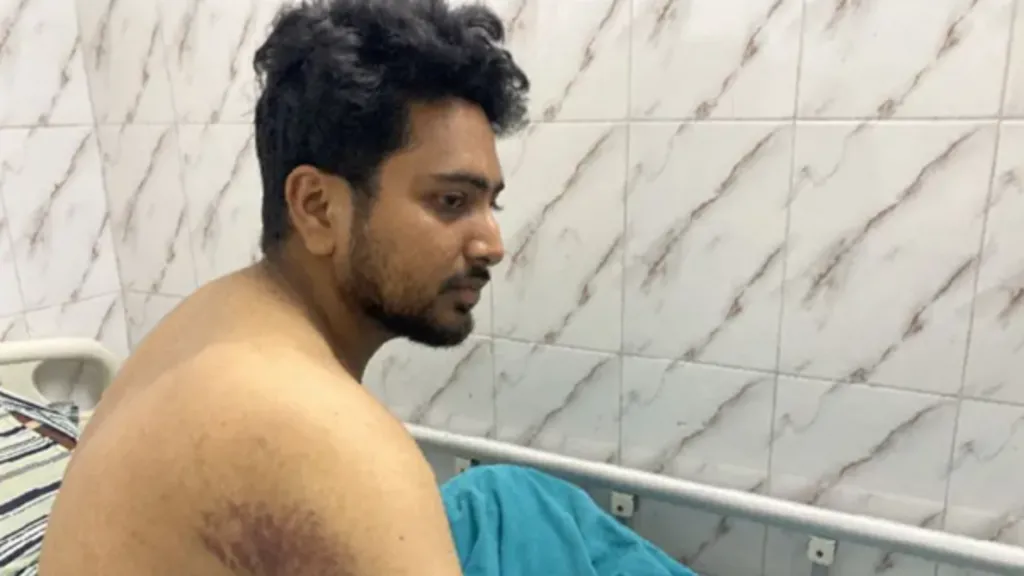Introduction
In recent days, the political climate in Bangladesh has been marked by significant turmoil, particularly centered around the actions taken against student protest leaders. Three key figures in the recent demonstrations have been forcibly removed from a hospital in Dhaka by police officers, an event that has sparked widespread concern and controversy. This article provides a detailed account of the events leading up to their detainment, the implications for the ongoing protests, and the broader context of the situation in Bangladesh.
The Forcible Removal of Protest Leaders
Incident Overview
On Friday, three student leaders, Nahid Islam, Asif Mahmud, and Abu Baker Majumder, were forcibly taken from Gonoshasthaya Hospital in Dhaka by plainclothes police officers. The men, who were receiving medical treatment for injuries they claimed were inflicted during their earlier detention by police, were removed despite the objections of hospital staff. The nature of their injuries and the circumstances surrounding their removal have drawn significant attention and concern.
Details of the Incident
According to hospital staff, the officers identified as members of the Detective Branch exerted considerable pressure to secure the discharge of the three men. Anwara Begum Lucky, a hospital supervisor, expressed her dismay, revealing that the police had pressured the hospital administration to comply with their demands. Fatema Tasnim, the elder sister of Nahid Islam, confirmed that six plainclothes detectives were involved in the operation, underscoring the forceful nature of the removal.
Claims of Torture
Nahid Islam, one of the detained students, had previously reported being abducted from a friend’s house. He described being interrogated and tortured by individuals claiming to be detectives. Islam alleged that he suffered physical and mental abuse, resulting in blood clots on his shoulders and left leg. After fainting from the ordeal, he sought medical treatment at Gonoshasthaya Hospital.
Response from Authorities
Government Reaction
In response to the incident, Bangladesh’s Information Minister Mohammad Ali Arafat indicated that an investigation would be undertaken. However, he also suggested that the situation might involve “sabotage,” implying that there could be an attempt to discredit the police force. This reaction has done little to quell the growing concerns among the public and human rights groups about the treatment of the student leaders.
Broader Context of the Protests
The protests, which have seen over 4,000 people arrested, are primarily driven by student groups, including Students Against Discrimination. The demonstrations were sparked by dissatisfaction with civil service hiring rules, which had led to violent clashes between protesters and security forces. At least 150 people have been killed as a result of these clashes, with accusations of excessive force being levied against the security forces.
Policy and Reforms
The protests have focused on the quota system for government jobs, which had reserved about 30% of high-paying positions for the relatives of those who fought in Bangladesh’s 1971 war for independence. In response to the public outcry, Bangladesh’s top court has rolled back most of these quotas, ruling that 93% of roles should be filled based on merit. This decision aligns with one of the key demands of the protesters but has not fully resolved the unrest.
Government Actions and Public Sentiment
Communications Blackout
At the onset of the protests, the Bangladeshi government imposed an unprecedented communications blackout. This measure included shutting down the internet and restricting phone services, which further intensified the public’s frustration and highlighted the government’s attempts to control the narrative surrounding the unrest.
Political Reactions
The political landscape has also been marked by controversy. Earlier this week, Bangladesh’s leader Sheikh Hasina faced criticism after being photographed in distress at a train station destroyed during the protests. Critics accused her of “crying crocodile tears,” suggesting that her public display of emotion was insincere. Sheikh Hasina has maintained that her security forces acted appropriately and has blamed political opponents for inciting the violence.
Continued Protests and Demands
Despite the court ruling and government responses, many student leaders and activists have vowed to continue their protests. Their demands include justice for those killed and detained, the resignation of government ministers, and an apology from Sheikh Hasina. The ongoing protests reflect a deep-seated frustration with the current political climate and a desire for greater accountability and reform.
Conclusion
The forcible removal of the student protest leaders from Gonoshasthaya Hospital is a stark reminder of the intense and often dangerous political climate in Bangladesh. The actions of the police, coupled with the broader context of the ongoing protests, underscore the complexities of the situation and the challenges faced by both the government and the protesters. As the nation grapples with these issues, the hope for resolution and reform remains a critical and evolving aspect of the political landscape in Bangladesh.


